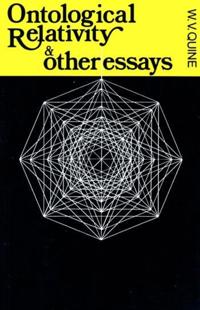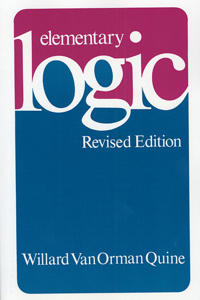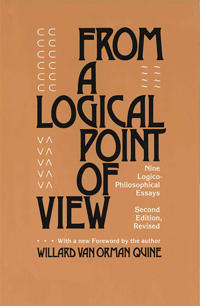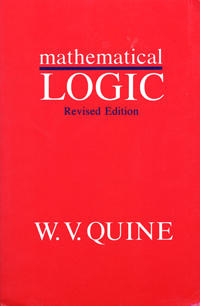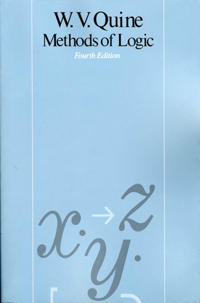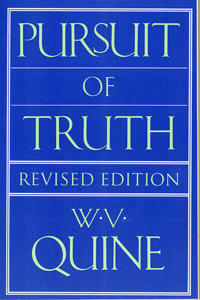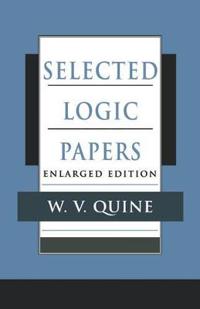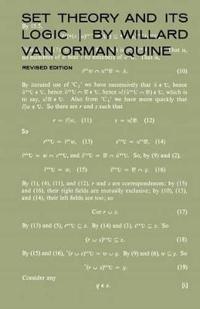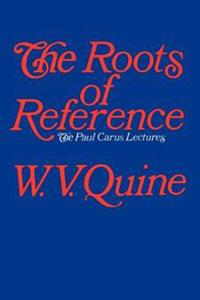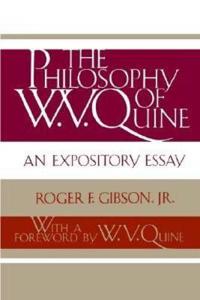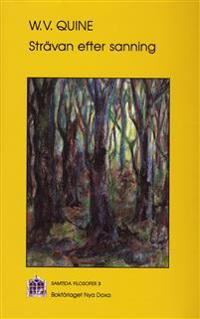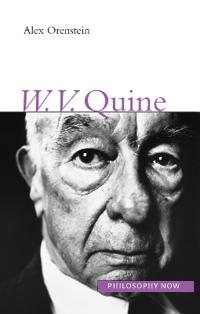Dear Carnap, Dear Van: The Quine-Carnap Correspondence and Related Work (Övrig)
avW. V. Quine, Rudolf Carnap
ISBN: 9780520068476 - UTGIVEN: 1991-04-11Rudolf Carnap and W. V. Quine, two of the twentieth century's most important philosophers, corresponded at length - and over a long period of time - on matters personal, professional, and philosophical. Their friendship encompassed issues and disagreements that go to the heart of contemporary philos[...]
The Web Of Belief (Pocket)
avW. V. Quine, J.S. Ullian
ISBN: 9780075536093 - UTGIVEN: 1978-02-01Presents an introduction to the study of rational belief. This book provides points of entry to such areas of philosophy as theory of knowledge, methodology of science, and philosophy of language. It is accessible to all undergraduates and presupposes no philosophical training.[...]
Ontological Relativity and Other Essays (Häftad)
avW. V. Quine
ISBN: 9780231083577 - UTGIVEN: 197705Traditionally, stability in Asia has relied on America's bilateral alliances with Japan, Australia, and the Republic of Korea. Yet in recent years, emergent and more active multilateral forums& mdash;such as the Six-Party Talks on North Korea and the East Asia Summit& mdash;have taken precedence, en[...]
Elementary Logic (Pocket)
avW. V. Quine
ISBN: 9780674244511 - UTGIVEN: 1980-10Now much revised since its first appearance in 1941, this book, despite its brevity, is notable for its scope and rigor. It provides a single strand of simple techniques for the central business of modern logic. Basic formal concepts are explained, the paraphrasing of words into symbols is treated a[...]
Methods of Logic (Häftad)
avW. V. Quine
ISBN: 9780674571761 - UTGIVEN: 198207This widely used textbook of modern formal logic now offers a number of new features. Incorporating updated notations, selective answers to exercises, expanded treatment of natural deduction, and new discussions of predicate- functor logic and the affinities between higher set theory and the element[...]
Pursuit of Truth (Häftad)
avW. V. Quine
ISBN: 9780674739512 - UTGIVEN: 199212A revised edition of Quine's concise presentation of major topics in the epistemological area of philosophy. He discusses evidence, reference, meaning, intension and truth, with the aim of avoiding common intellectual confusion over efforts to forge links between observation, theory and the world.[...]
Selected Logic Papers (Pocket)
avW. V. Quine
ISBN: 9780674798373 - UTGIVEN: 1995-03For more than two generations, W.V. Quine has contributed fundamentally to the substance, the pedagogy and the philosophy of mathematical logic. "Selected Logic Papers", long out of print and now reissued with eight additional essays, includes much of the author's important work on mathematical logi[...]
Set Theory and Its Logic (Häftad)
avW. V. Quine
ISBN: 9780674802070 - UTGIVEN: 1969-07This is an extensively revised edition of Mr. Quine's introduction to abstract set theory and to various axiomatic systematizations of the subject. The treatment of ordinal numbers has been strengthened and much simplified, especially in the theory of transfinite recursions, by adding an axiom and r[...]
The Roots of Reference (Häftad)
avW. V. Quine
ISBN: 9780812691016 - UTGIVEN: 199004Studies the sensory bases of perception, mechanisms of language learning, and mental processes involved in identification, quantification, and other areas of scientific thought[...]
The Philosophy of W.V. Quine
ISBN: 9780813008554 - UTGIVEN: 1986-09How we acquire our theory of the world is for W. V. Quine the central question of epistemology. Gibson sets forth Quine's philosophy as a systematic attempt to answer this question; his analysis challenges those who might view Quine's theses as multifarious and disparate.Since many studies of Quine [...]
Strävan efter sanning (Inbunden)
avW.V. Quine
ISBN: 9789188248374 - UTGIVEN: 199301Här diskuteras hur teorier måste gå utanför sitt empiriska innehåll, och frågan om evidensens natur den mänskliga teoribildningens råmaterial.
[...]A Companion to W. V. O. Quine (Häftad)
avGilbert Harman, Ernest Lepore
ISBN: 9780470672105 - UTGIVEN: 2013-12-31This Companion brings together a team of leading figures in contemporary philosophy to provide an in-depth exposition and analysis of Quine's extensive influence across philosophy's many subfields, highlighting the breadth of his work, and revealing his continued significance today. Provides an in-d[...]
W.V.O.Quine (häftad)
ISBN: 9781902683317 - UTGIVEN: 2002-02The most influential philosopher in the analytic tradition of his time, Willard Van Orman Quine (1908-2000) changed the way we think about language and its relation to the world. His rejection of the analytic/synthetic distinction, his scepticism about modal logic and essentialism, his celebrated th[...]



